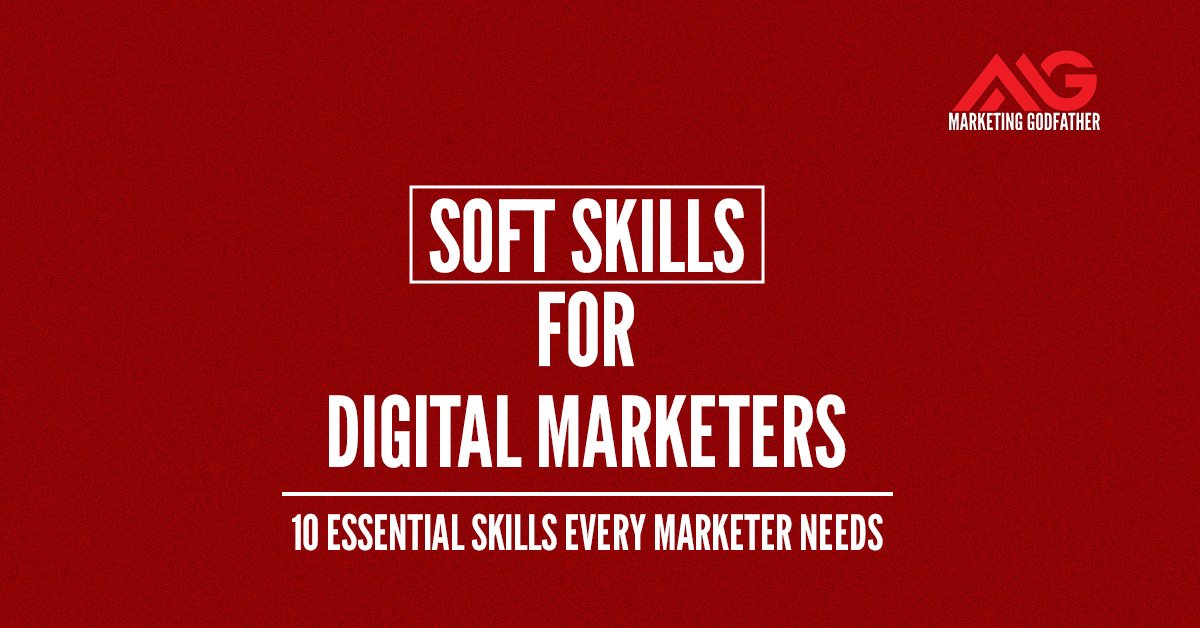Behind every successful marketing campaign, there’s more than just tools, data, and technical expertise. The real difference often comes from Soft Skills for Digital Marketers, the human abilities that help professionals communicate ideas, understand audiences, and adapt to constant industry changes. While hard skills like SEO or analytics drive performance, soft skills shape strategy, creativity, and collaboration.
In today’s competitive digital landscape, mastering these skills is essential for long-term growth and career success. In the next section, you’ll discover the most important soft skills every digital marketer needs and how they directly impact real-world marketing results.
What Are Soft Skills in Digital Marketing?
A digital marketing soft skills definition refers to the non-technical, interpersonal attributes that determine how effectively you work with others and manage your professional responsibilities. While hard skills involve your ability to navigate a CMS or run a SQL query, soft skills in digital marketing are the how behind the what. These non-technical skills in digital marketing include emotional intelligence, clear communication, and cognitive flexibility to pivot when a strategy isn’t delivering results.
10 Most Important Soft Skills for Digital Marketers
1. Communication Skills
Effective communication skills are the foundation of every successful digital marketing project. Whether you are explaining a complex SEO pivot to a non-technical client or coordinating with a graphic designer on a brand refresh, clarity is king. You must be able to translate data into a compelling narrative that stakeholders can understand and support.
2. Creativity and Innovative Thinking
Creativity in digital marketing isn’t just about pretty pictures; it’s about finding unique angles to solve consumer problems. In 2026, with saturated digital channels, the ability to think outside the standard best practices is what helps a brand break through the noise. Innovative thinking allows you to design campaigns that feel fresh and authentic.
3. Adaptability to Changing Trends
The only constant is change. Adaptability skills in digital marketing involve staying calm when an algorithm update wipes out rankings or a new social platform emerges overnight. An adaptable marketer views disruption as an opportunity to learn rather than a threat to their workflow.
4. Analytical Thinking
While tools provide the data, analytical thinking for marketers provides the why. This skill involves looking at a spreadsheet and seeing a story. It’s the ability to connect disparate data points, like a drop in time-on-page and a rise in bounce rate, to identify a specific technical or content-based friction point.
5. Time Management
With multiple campaigns, platforms, and deadlines running simultaneously, time management for digital marketers is a survival skill. It involves prioritising high-impact tasks (such as strategy and optimisation) over low-impact busywork. Using frameworks like the Eisenhower Matrix can help ensure you aren’t just busy, but productive.
6. Problem-Solving Skills
Marketing is a series of puzzles. Problem-solving skills marketing experts utilise include diagnosing why a high-traffic page isn’t converting and how to reach a niche audience with a limited budget. It requires a logical approach to identifying roadblocks and testing iterative solutions.
7. Strategic Thinking
Strategic thinking in marketing means looking beyond the next post or the next week. It’s the ability to align digital tactics with the company’s overarching business goals. A strategic marketer asks, How does this specific TikTok trend actually serve our five-year brand objective?
8. Attention to Detail
In a world of automated ads, a single typo in a URL or a misplaced decimal point in a budget can be catastrophic. Attention-to-detail marketing ensures that every brand touchpoint is polished and professional, protecting the brand’s reputation and the client’s wallet.
9. Leadership Skills
Even if you aren’t a manager, leadership skills for marketers are vital. It involves leading from the middle, taking ownership of projects, inspiring peers to hit deadlines, and advocating for the best creative ideas. True leaders in marketing mentor others and foster a culture of continuous improvement.
10. Customer Understanding
At its core, marketing is psychology. Customer psychology marketing skills involve developing a deep empathy for the end user. By understanding your target audience’s fears, desires, and pain points, you can create marketing funnels that feel like helpful solutions rather than intrusive sales pitches.
Soft Skills vs Hard Skills in Digital Marketing (Comparison Table)
| Soft Skills (The How) | Hard Skills (The What) |
| Communication | SEO & SEM |
| Creativity | Google Ads Management |
| Adaptability | Data Analytics (GA4) |
| Leadership | PPC Strategy |
| Problem Solving | Email Marketing Automation |
| Empathy | Content Management Systems (CMS) |
How to Improve Soft Skills for a Digital Marketing Career
Improving your interpersonal toolkit requires intentional practice. Unlike learning a new software, you cannot install a soft skill; you must cultivate it.
- Practice communication daily: Summarise your daily wins in three concise bullet points for your manager to practice brevity.
- Work in cross-functional teams: Volunteer for projects involving the sales or product teams to see different perspectives.
- Learn from feedback: Instead of being defensive during a performance review, treat it as a data-gathering session for personal optimisation.
- Observe successful marketers: Watch how leaders handle high-pressure meetings or how they phrase difficult emails.
- Practice creative thinking: Spend 15 minutes a day idea-mapping solutions for brands you don’t work for to keep your brain flexible.
Key Takeaways
- Soft skills improve marketing performance by bridging the gap between data and human emotion.
- Communication is the most important skill for managing client expectations and team cohesion.
- Creativity and adaptability are the best defences against AI-driven automation and market volatility.
Conclusion
As we navigate 2026, the technical barrier to entry in this industry remains low thanks to AI. Consequently, the real competitive advantage lies in mastering soft skills for digital marketers. By balancing your technical prowess with emotional intelligence, strategic thinking, and clear communication, you ensure that you remain an asset that no algorithm can replace. Focus on the human element, and your career and your campaigns will thrive.



